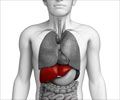Highlights:
- A simple bile acid blood test could prevent stillbirths in women with intrahepatic cholestasis of pregnancy (ICP)
- The blood test could also help avoid unnecessary preterm births
- The discovery is an important step forward in the diagnosis and management of liver disorders during pregnancy, suggests a new study
Read More..
Details of the Study
A new study conducted by a research team from Guy's and St Thomas' and King's College London has found a way to measure the risk of stillbirth for women with ICP by means of a simple blood test. The team analyzed more than 170,000 pregnancies from 40 international studies in order to comprehend the association between ICP, bile acid levels and stillbirth. The study was funded by ICP Support, Tommy's, Genesis Research Trust, Wellcome Trust and the NIHR.Findings from the Study
The results of the study, published in The Lancet, show that the concentration of bile acids in a pregnant woman’s blood is linked to the probability of stillbirth as a result of ICP. It would now be possible to determine this using a simple blood test.Doctors could highly benefit from this study as they would be able to identify all pregnant women who are at risk of stillbirth, requiring an intervention to prevent it. Therefore women with ICP who are at low risk of carrying their pregnancy till full term would also be at an advantage.
The research team believes that by implementing this test hundreds of women could be prevented from having early deliveries unnecessarily.
Professor Catherine Williamson, Consultant Obstetric Physician and Chair in Women's Health at Guy's and St Thomas' and King's College London, also the study lead remarked, “We are grateful to our collaborators worldwide who have helped us perform the largest study to date, the results of which will enable doctors to personalise treatment for women with ICP.” She added that “We can now identify those women at the highest risk of stillbirth and consider interventions to specifically prevent stillbirth in this group. We will also be able to reassure a large number of women, who may have previously been concerned, that they are not at increased risk of stillbirth.”
Around 700 women in the UK and 18,500 globally, at the moment, are having early deliveries. They account for more than 15 percent of women having bile acids below the 100 micromoles per liter limit.
The risk of stillbirth for majority of women with ICP, who have bile acid concentration below 100 micromoles per litre, when compared to women without ICP is not significantly great. These women do not require any further treatment during the rest of their pregnancy, other than the regular bile acid blood tests.
Other Observations
Actress and Patron of ICP Support, Helen George, is certain that the results of the study will be comforting news for many women with ICP. She said that “My own ICP pregnancy would have been less anxiety-provoking with this latest information but I believe that it's also incredibly important that women who itch continue to let their midwife or doctor know so that they can be tested for the condition.”“This marks a real step forward in the & diagnosis and management of liver disorders during pregnancy. Being able to measure the risks to women and their babies by simple tests allows doctors to concentrate treatment on those who really need it,” says Dr. Caroline Ovadia, Chadburn Clinical Lecturer at King's College London.
“It also means that women will not have to be offered preterm birth unnecessarily which comes with associated risks to their babies including admission to neonatal units, breathing problems and jaundice. We are hopeful our findings will help to improve pregnancy outcomes in high-risk women and allow thousands of pregnant women to be reassured that their ICP does not pose a significant risk to themselves or their baby,” Dr. Ovadia added.
CEO of ICP Support, Jenny Chambers, who suffered two stillbirths because of the disorder said, “We welcome the news that most women with ICP will now be spared the anxiety of worrying about the possibility of stillbirth. However, it important that health professionals realize that regular bile acid testing until birth is vital to ensure that those women who are at greater risk aren't missed.”
Jane Brewin, Chief Executive of Tommy's mentioned, “Stillbirth devastates parents' lives and Tommy's believes that too many babies still die at full term. This study means that we can detect more otherwise healthy babies who are at risk of sudden death because of their mother's liver condition. This study has the potential to save lives if the practice is revised immediately and implemented nationally. Importantly it will prevent babies from being induced early, which carries a risk of lifelong negative consequences for them, and prevent the distress and concern caused to parents who wrongly believe that their baby is at risk.”
References:
- Association of Adverse Perinatal Outcomes of Intrahepatic Cholestasis of Pregnancy with Biochemical Markers: Results of Aggregate and Individual Patient Data Meta-analyses - (https://doi.org/10.1016/S0140-6736(18)31877-4)
















